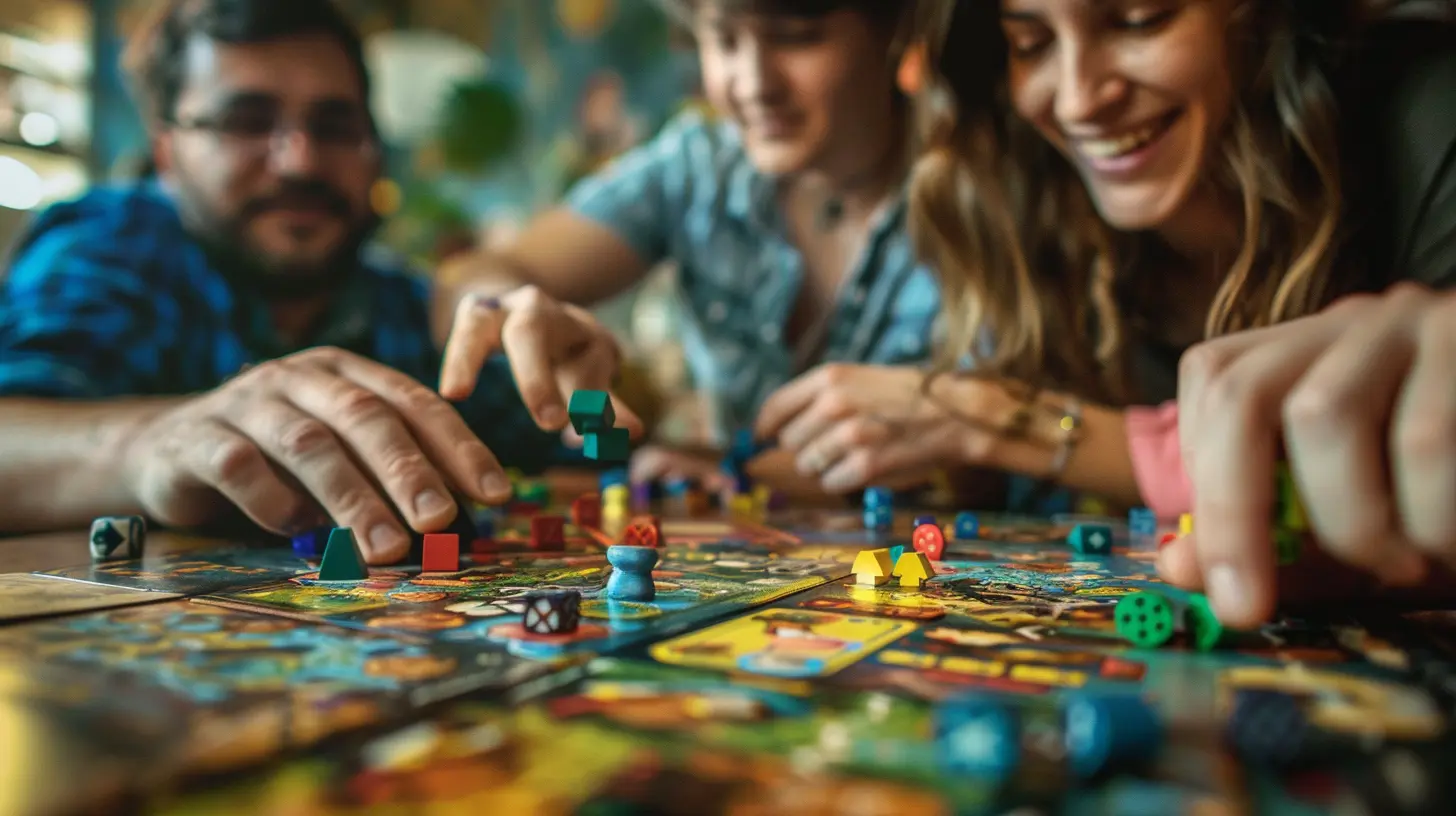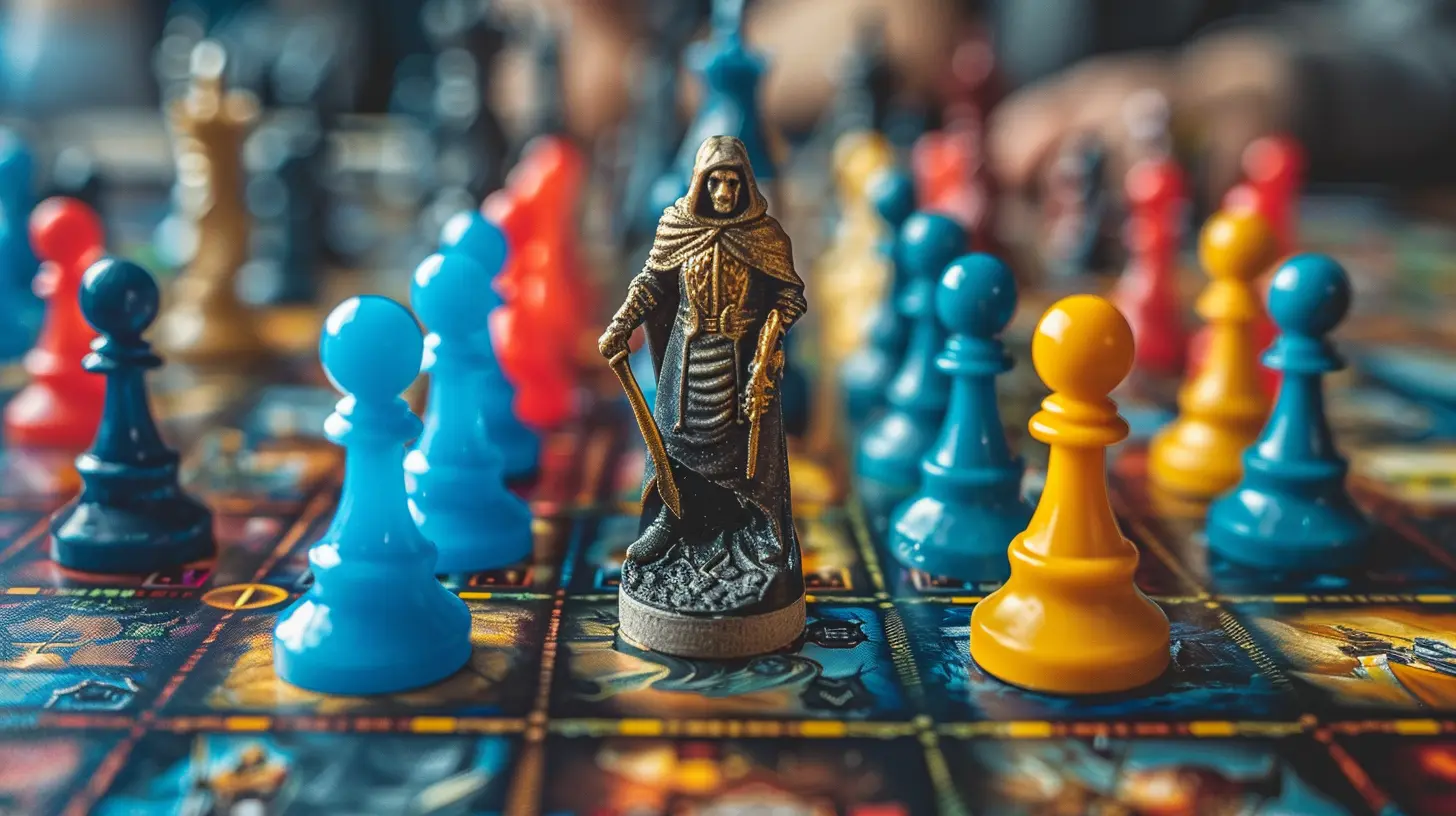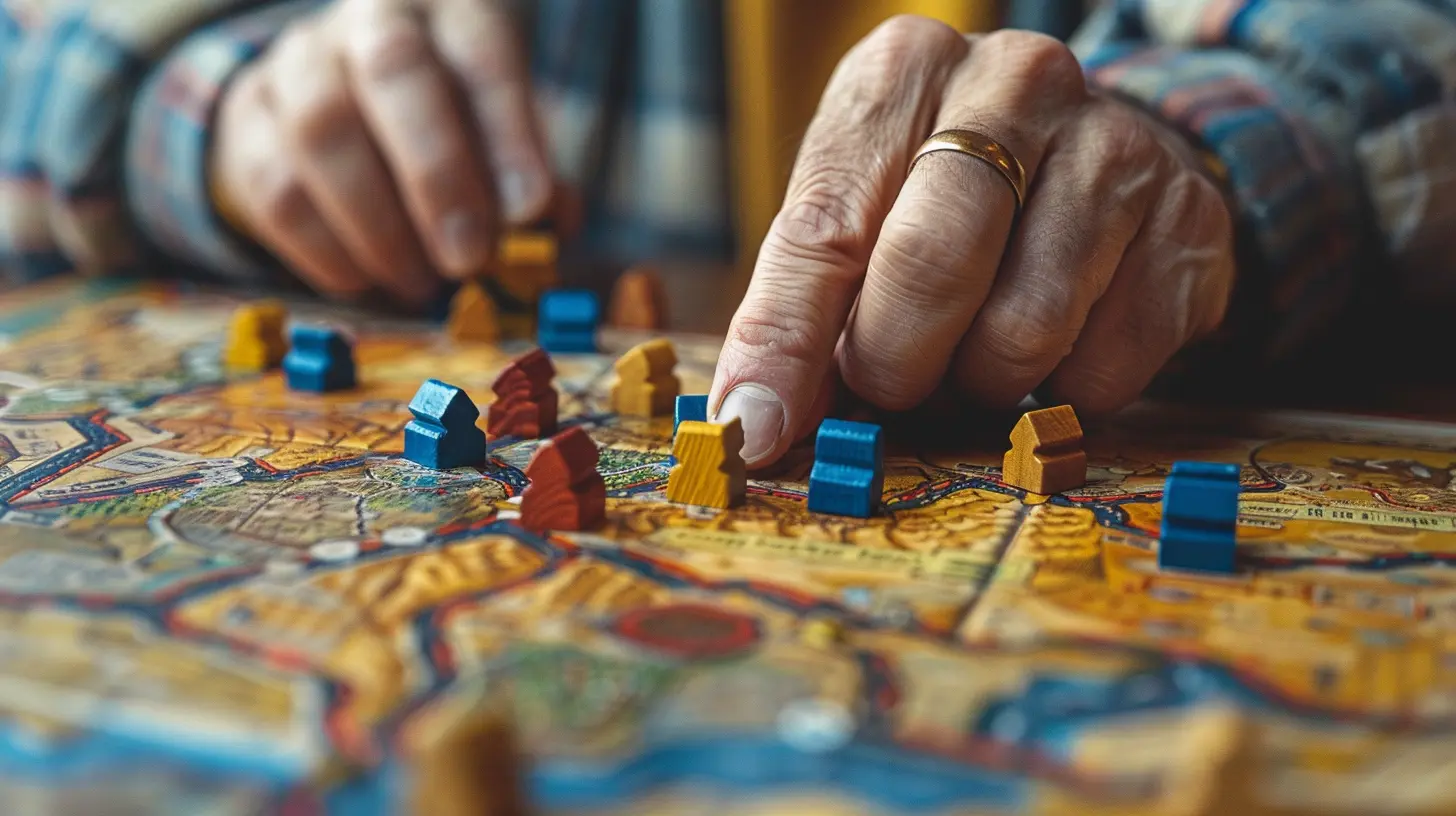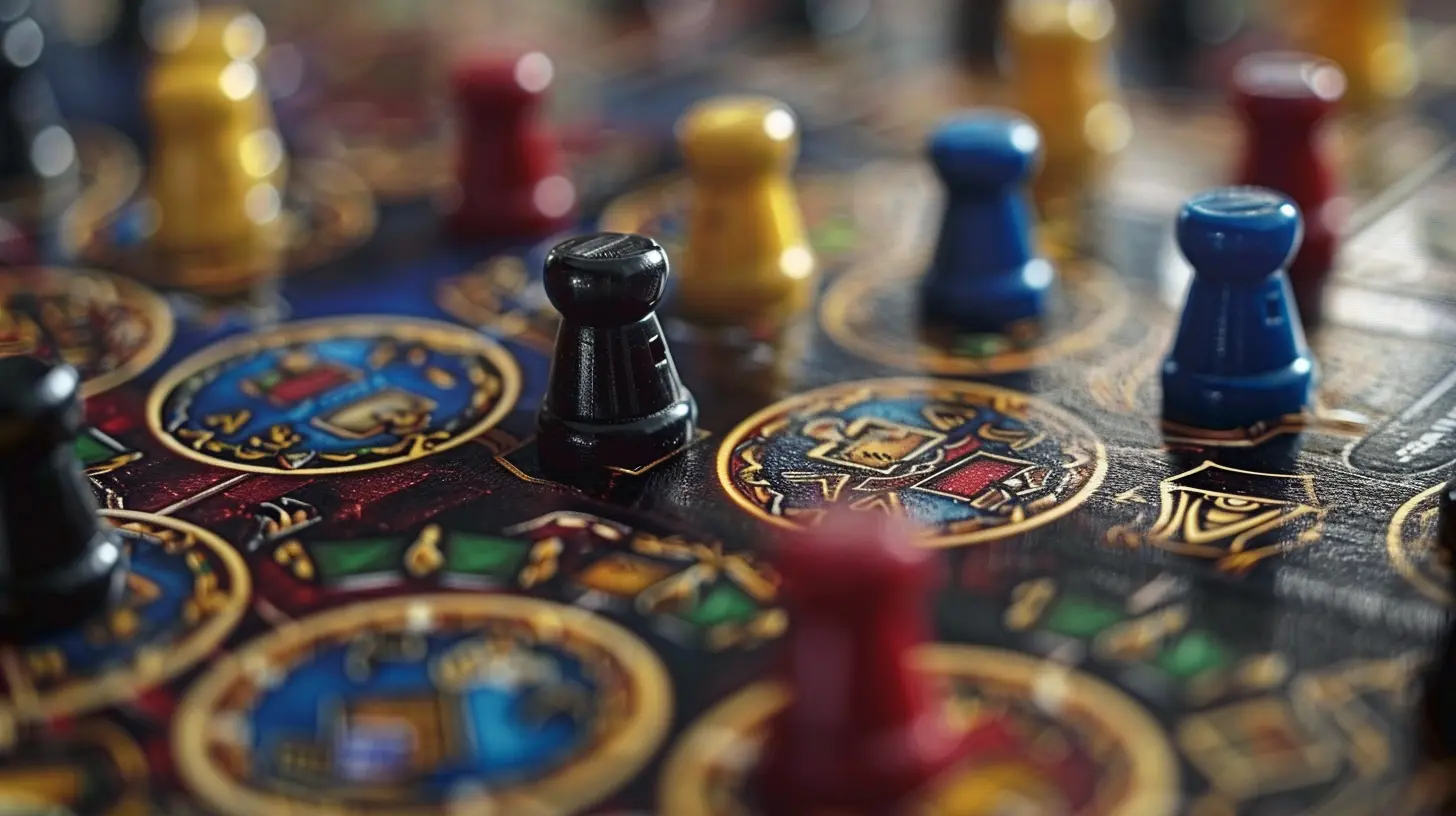The Role of Storytelling in Making Board Games Unforgettable
12 September 2025
Have you ever played a board game that stayed with you long after the pieces were packed away? I’m not talking about just the thrill of winning (though let’s be honest, winning feels great). I’m talking about the games that pulled you into their world, made you feel part of the story, and left you saying, "Wow, that was an experience." That’s the magic of storytelling in board games. It’s what turns an ordinary roll of the dice into a journey you’ll remember for years to come.
Let’s dive right in and talk about why storytelling is such a big deal in board games and why it’s the secret ingredient to making them unforgettable.
What’s So Special About Storytelling in Board Games?
Think about it—stories are everywhere. They're in the books we read, the movies we watch, and even the bedtime tales we loved as kids. Stories connect us. They evoke emotions, spark our imagination, and make us care. When it comes to board games, storytelling does the exact same thing. It transforms a game from simply being about mechanics and rules into an immersive experience where you're not just playing—you’re living it.Let’s compare it to a puzzle. Sure, putting together a puzzle is fun because of the challenge. But slap a compelling story behind it, and the game goes from, "Hey, let’s solve this thing" to "We need to uncover the plot before time runs out!" Storytelling adds depth. It gives your actions purpose and stakes. Without it, you’re just moving pieces on a board.
Immersion: Bringing Players Into the World
Close your eyes for a second (well, maybe just pretend—you’re reading this, after all). Imagine you’re a rogue thief sneaking through a dark castle, trying to outwit guards and find hidden treasures. That’s what storytelling does—it pulls you into another world.Games like Gloomhaven and Dungeons & Dragons absolutely thrive on this. They give you rich backstories, fascinating characters, and immersive settings. You’re not just rolling dice; you’re on an adventure, making decisions that shape your fate. This kind of immersion makes everything feel more epic and memorable.
On the flip side, think about games with little to no story. Sure, they may still be fun, but they lack that wow factor. It’s like eating plain toast when you could’ve had a fully loaded sandwich with all the toppings. Why settle for basic when you can get a feast?
Emotional Investment: Making You Care
Here’s the thing—games with strong storytelling make you care. They make you root for characters, gasp at plot twists, and feel genuine suspense when things don’t go your way. When a game can tug at your heartstrings, it’s doing something right.Take Pandemic Legacy, for instance. It’s not just about curing diseases (though that part’s nerve-wracking, let me tell you). It’s about working as a team, dealing with unexpected setbacks, and following a story that evolves with each session. You feel invested because the stakes are high, and every decision matters.
It’s like watching your favorite TV show. You get attached to the plot and characters. The same happens in storytelling board games—they make you emotionally invested, and that’s what keeps you coming back for more.
Replayability: The Gift That Keeps on Giving
You know what’s cool about storytelling in games? It makes them super replayable. With branching narratives and multiple endings, no two playthroughs are exactly the same. It’s like rewatching a mystery movie to spot clues you missed the first time.Take Betrayal at House on the Hill, for example. Every game is like a mini horror story, and you never know who the “traitor” will be or how the story will unfold. It’s unpredictable and keeps things fresh. You can play it ten times and still get surprised.
Games with good storytelling create an experience that evolves. Sure, you might know the mechanics by heart, but the story keeps surprising you. It’s like peeling back the layers of an onion—there’s always more to uncover.
How Storytelling Enhances Player Interaction
Ever notice how much more fun a game becomes when everyone’s invested in the narrative? It gets loud, chaotic, and oh-so-entertaining. Storytelling has this amazing way of bringing players together. It gives you shared goals, creates tension, and—most importantly—makes the moments unforgettable.For instance, in Sheriff of Nottingham, the game isn’t just about smuggling goods past the sheriff; it’s about bluffing, negotiating, and weaving your own mini-tales to convince everyone you’re innocent (even when you’re not). Storytelling here fuels the social dynamics. It’s not just a game anymore; it’s a stage for hilarious and dramatic performances.
This level of interaction is what makes game night feel less like competition and more like storytelling theater. You’re not just playing with people—you’re creating a story together.
Balancing Story and Mechanics: The Sweet Spot
Okay, let’s pump the brakes for a sec and address the elephant in the room. Storytelling is awesome, no doubt, but it can’t carry a game on its own. No one wants to sit through hours of fluff if the game mechanics are clunky or boring. The key is balance—melding a great narrative with engaging gameplay.Games like Scythe and Dead of Winter do this beautifully. They combine strong storytelling with polished mechanics. You’re not constantly bogged down by exposition, but the narrative is still present, guiding your decisions and keeping things exciting.
It’s a bit like seasoning. Too much, and it overpowers the dish. Too little, and it feels bland. Finding that perfect balance is what makes storytelling board games truly unforgettable.
Adding Your Own Spin: The Beauty of Player-Created Stories
One of the coolest things about board games is that they’re often a starting point for your own stories. Sure, the game might provide the framework, but it’s the players who breathe life into it.Ever create inside jokes based on something that happened during a game? Or make up elaborate backstories for your character in Catan? That’s storytelling in action. The beauty of it is that it’s dynamic. Game designers may craft the initial narrative, but players expand it in ways that make the experience wholly unique.
It’s like being handed the first chapter of a book and then being told, "Write the rest yourself." The possibilities are endless, and that’s what makes every game special.
Why Storytelling Sticks with Us
At the end of the day, storytelling resonates because it’s universal. Everyone loves a good story. It connects us, engages us, and makes us feel something. When a board game taps into that, it elevates the experience from fun to unforgettable. You’re not just following rules—you’re part of the tale.So next time you play a game, pay attention to the story it tells. Is it pulling you in? Making you care? Giving you something to laugh about, cry over, or celebrate with your friends? If so, that’s storytelling working its magic, and it’s probably why you’ll be itching to play it again.
Wrapping It Up
Storytelling is the heart and soul of what makes some board games truly shine. It immerses you, makes you care, and keeps you coming back for more. Whether it’s a cooperative quest, a competitive strategy, or a party game full of laughs, a great story can transform a simple activity into something magical.So, the next time you’re choosing a board game for game night, consider this: does it have a story worth telling? If it does, you’re in for something unforgettable.
all images in this post were generated using AI tools
Category:
Board GamesAuthor:

Leandro Banks
Discussion
rate this article
1 comments
Henrietta Nelson
This article brilliantly highlights how storytelling elevates board games beyond mere mechanics, creating immersive experiences that resonate with players. A compelling narrative not only enhances engagement but also fosters emotional connections, making each game unforgettable.
September 12, 2025 at 2:44 AM

Leandro Banks
Thank you for your thoughtful comment! I’m glad you found the connection between storytelling and player engagement in board games compelling. It truly elevates the experience!


